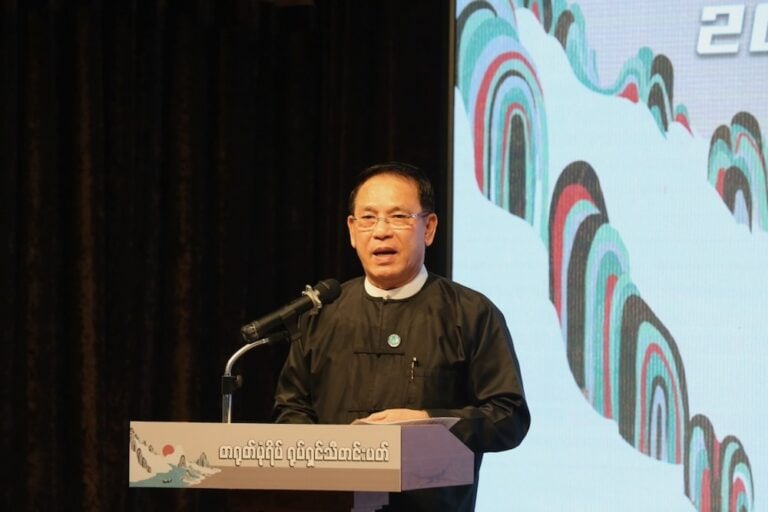(SEAPA/IFEX) – A foreign journalist was reportedly killed by military troops on 27 September 2007, the second day of the Burmese junta’s crackdown on protesters in Rangoon, according to exile-run news agency Mizzima. The New Delhi based media group said the Burmese Foreign Ministry has confirmed that a Japanese photojournalist was killed. However, his name […]
(SEAPA/IFEX) – A foreign journalist was reportedly killed by military troops on 27 September 2007, the second day of the Burmese junta’s crackdown on protesters in Rangoon, according to exile-run news agency Mizzima.
The New Delhi based media group said the Burmese Foreign Ministry has confirmed that a Japanese photojournalist was killed. However, his name has yet to be verified.
As hundreds of people took to the streets of Rangoon on the 10th day of protests, about 200 military troops fired warning shots and threatened them to disperse or face “extreme action”. Eyewitnesses said the military opened fire and sprayed tear gas on protestors, arresting and killing scores.
Troops also raided monasteries to beat and arrest the monks who have been leading marches every day since 19 September in protest of the violent clampdown against earlier demonstrations over extreme inflation brought upon by a fivefold hike in fuel prices.
With foreign journalists facing visa restrictions and local journalists under full control of the junta, citizen journalism is becoming a crucial channel of information in the totalitarian state. Protesters fleeing the baton-wielding police run to the few Internet cafés still open to report and upload photographs and video clips of the bloody crackdown as it occurs. They persevere, despite increasing disruptions in mobile phone and land lines, knowing that the junta’s current atrocities must be made known to the world, failing which more will be committed with impunity by the dictatorial regime in power since 1990.
Yet embassies and international non-governmental organisations are reportedly withdrawing their staff from the country, reducing international eyes on the unfolding tragedy befalling the unprotected Burmese civilians.


